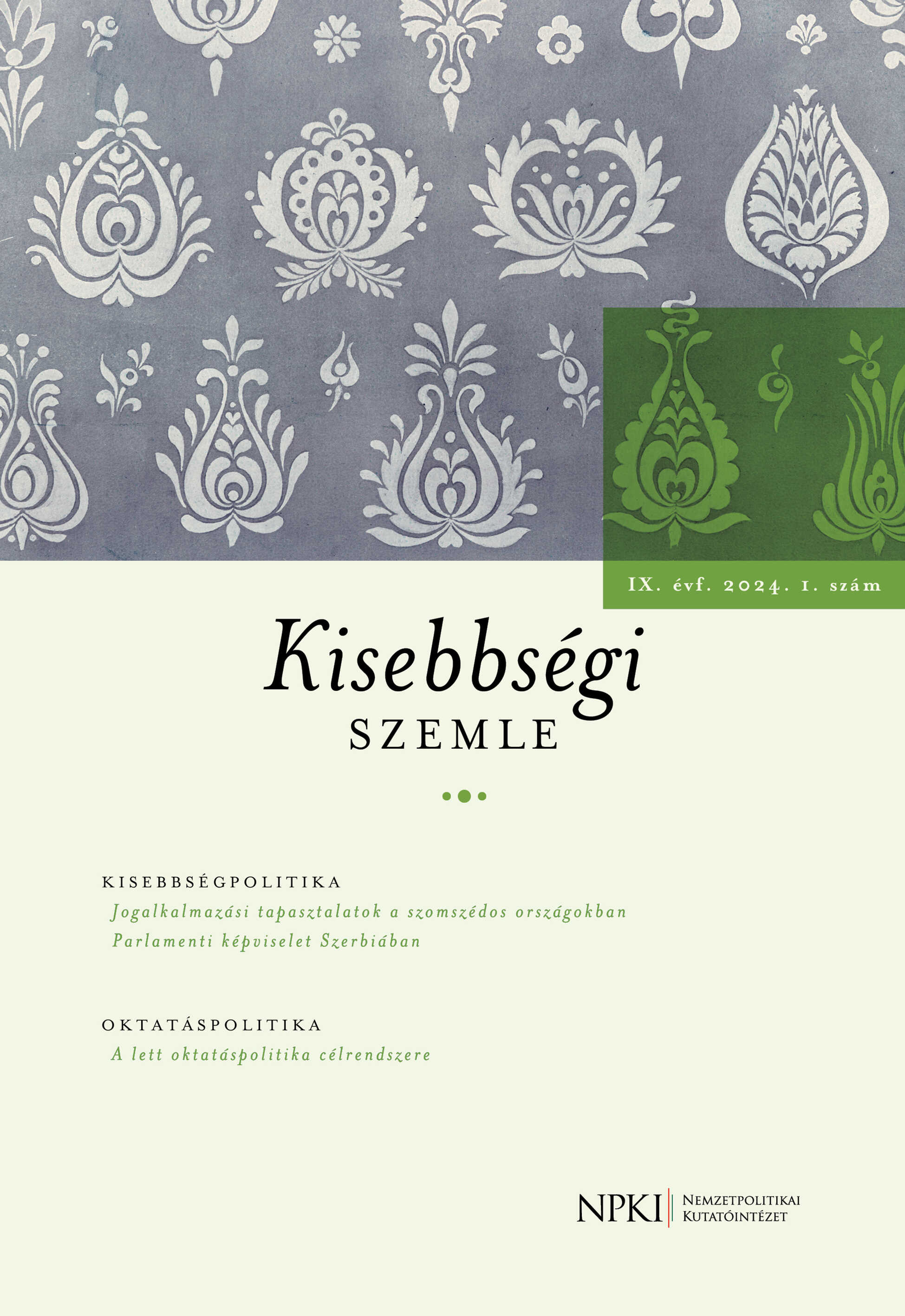Asszimiláció vagy integráció: a lett oktatáspolitika célrendszere
The Objective of Latvian Education Policy: Assimilation or Integration?
Author(s): Krisztián ManzingerSubject(s): Politics and society, Preschool education, School education, State/Government and Education, Pedagogy
Published by: Nemzetpolitikai Kutatóintézet
Keywords: minorities;Latvia;education policy
Summary/Abstract: Nation-state building and compulsory education have long been creating a challenge in the relationship between the state and minorities, both in terms of the language and the content of curriculum. This is no different in Latvia, which is home to significant minority communities. In this respect, a particularly significant shift occurred during the Soviet occupation, when decades-long resettlement policies increased the Russian population to one third and decreased the Latvians to 52 percent of the population by 1989. During the Soviet period, the primary language of instruction was Russian, which Latvia sought to correct after the restoration of independence in 1991 by increasing the role of Latvian, particularly in education. The reshaping of the educational system has been going on for decades and now it seems to have achieved the Latvian legislator’s goal: the restriction of minority language education and the introduction of an exclusive Latvian-language education, with the exception of only minority language and culture courses taught in the mother tongue. According to the state institutions, the abolition of minority language education in the general curriculum is for the sake of more effective social integration. This approach however, if the geopolitical perspective is disregarded, creates a matter of concern from a purely human rights point of view.
Journal: Kisebbségi Szemle
- Issue Year: 9/2024
- Issue No: 1
- Page Range: 65-91
- Page Count: 27
- Language: Hungarian

